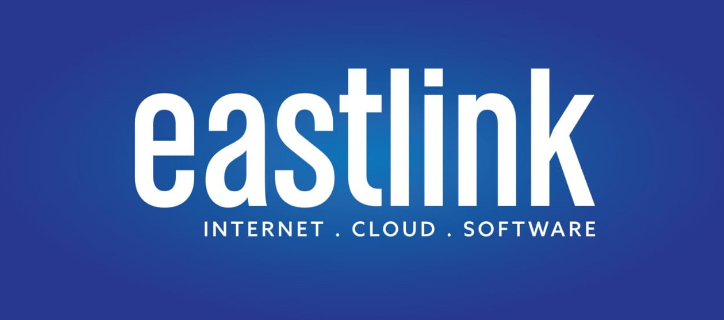As the owner of a website, you want it to deliver content as quickly as possible to your visitors, particularly when peak traffic times occur. This is crucial if you want to increase your sales and grow your audience. That’s where bandwidth comes in, and why choosing the right bandwidth is so important.
Higher bandwidth allows you to include more dynamic content and features on your website, which in turn can make it more appealing for customers to visit. Your choice of bandwidth usually comes down to three major options – metered, unmetered, and unlimited bandwidth. In this article, we explore all three options so that you have a clear idea of what would suit your requirements best.
But first, let’s look at the basic concept of bandwidth.
What is Web Hosting Bandwidth?
Simply put, bandwidth refers to the capacity of a wireless or wired network communications link to transfer the maximum data from point A to point B over a computer network, or internet connection in a specific amount of time (this is usually defined through seconds).
Bandwidth essentially describes the data transfer rate. If a data connection has more bandwidth, it can send and receive more data at a single set time. An accurate analogy to describe bandwidth is by comparing it to the water that flows through a pipe. With a bigger pipe, more water can flow through at a given time. In the same way, the higher the capacity of your network communications link, the more data can pass through it every second.
A common misconception is when bandwidth is mistaken for speed. It’s a fine line, but speed technically refers to the rate at which data can be transmitted, whereas bandwidth is the capacity for that speed. Speed refers to how fast the data can move; bandwidth is what allows the data to move so quickly. Bandwidth is typically calculated and sold by Gigabytes, but certain hosting providers do offer unlimited bandwidth (an option we’ll discuss below).
So, let’s move on to the types of bandwidth you may be offered.
Metered Bandwidth
With a metered bandwidth connection, you gain access to a specific amount of bandwidth (either measured in GB or TB), per month. If you overuse your bandwidth and cross the limit, your hosting provider will charge you for overage, based on their guidelines. For instance, if you select a package of around 30TB per month, you can use that amount at the speed of your server port.
Unlimited Bandwidth
Unlimited bandwidth is a unicorn of sorts. It sounds great, but it doesn’t exist the way we want it to. Many times, you’ll often see shared web hosting companies offered unlimited storage, domains, disk space, and bandwidth.
However, the term unlimited can be misleading in certain cases. Generally, hosting companies do set bandwidth limits on the plans and packages that they offer. But the limits are so high that most websites never consume that amount of bandwidth, making it “unlimited.”
This feature can be ideal for smaller sites that opt for Shared Hosting as unlimited basically means offering an amount that a small website cannot use. Therefore, they never exceed the limit, making it seem unlimited.
Furthermore, while unlimited bandwidth does sound like a prime deal, what your hosting provider is not sharing with you is that there are set limits on how much the server’s CPU you can use. When your site crosses that limit, the web host may simply shut down your site when there is a peak in requests. You will simply be asked to upgrade to a better plan.
Unmetered Bandwidth
With unmetered bandwidth, the amount of data/ traffic sent back and forth from your server during a month has no limit. This means that the amount of data transferred has no impact on your monthly billing. Customers can use as much bandwidth as the port can take. There’s no worry about incurring extra costs with an unmetered plan, as the usage limit is set based on the port size you choose.
For small businesses that don’t see much traffic, this may not be an ideal plan. However, for businesses or websites that do bring in massive amounts of traffic, or deal with large spikes in traffic, unmetered bandwidth is an ideal fit. If you operate on metered bandwidth and happen to encounter several spikes in usage, you could end up paying a hefty sum, when the volumes of traffic far exceed the limits of bandwidth usage.
By opting for unmetered bandwidth, you not only anticipate growth for your website, but you’re also being cost-effective about it. Businesses that work well on unmetered bandwidth include e-commerce sites (retail sites that offer regular sales or have a wide audience), news and media sites (large volumes of regular readers and spikes during peak times), online gaming sites (who use high volumes of data and require high-speed services) and blog with heavy but regular traffic. These are just some examples.
The blessing of an unmetered connection is that during peak traffic times, an unmetered plan will flatten out the data usage evenly, in order to stay within limits. So, you don’t get cut off or charged for high volumes of traffic.
So, keeping these features in mind – what bandwidth should you go with?
Which is the Ideal Bandwidth Type – Metered, Unmetered or Unlimited?
Unless you’re a small website (e.g., a personal blog), without too many visitors, unmetered bandwidth offers you the strongest benefits of the three. With unmetered bandwidth, you can use the maximum resources that the web server can hold, without sacrificing page load time or paying extra.
So, visit the website and find out more details on our hosting plans.
Eastlink Cloud Pvt. Ltd.
Tripureshwor, Kathmandu, Nepal
Phone:166001-95985
Mail:info@eastlinkcloud.com












